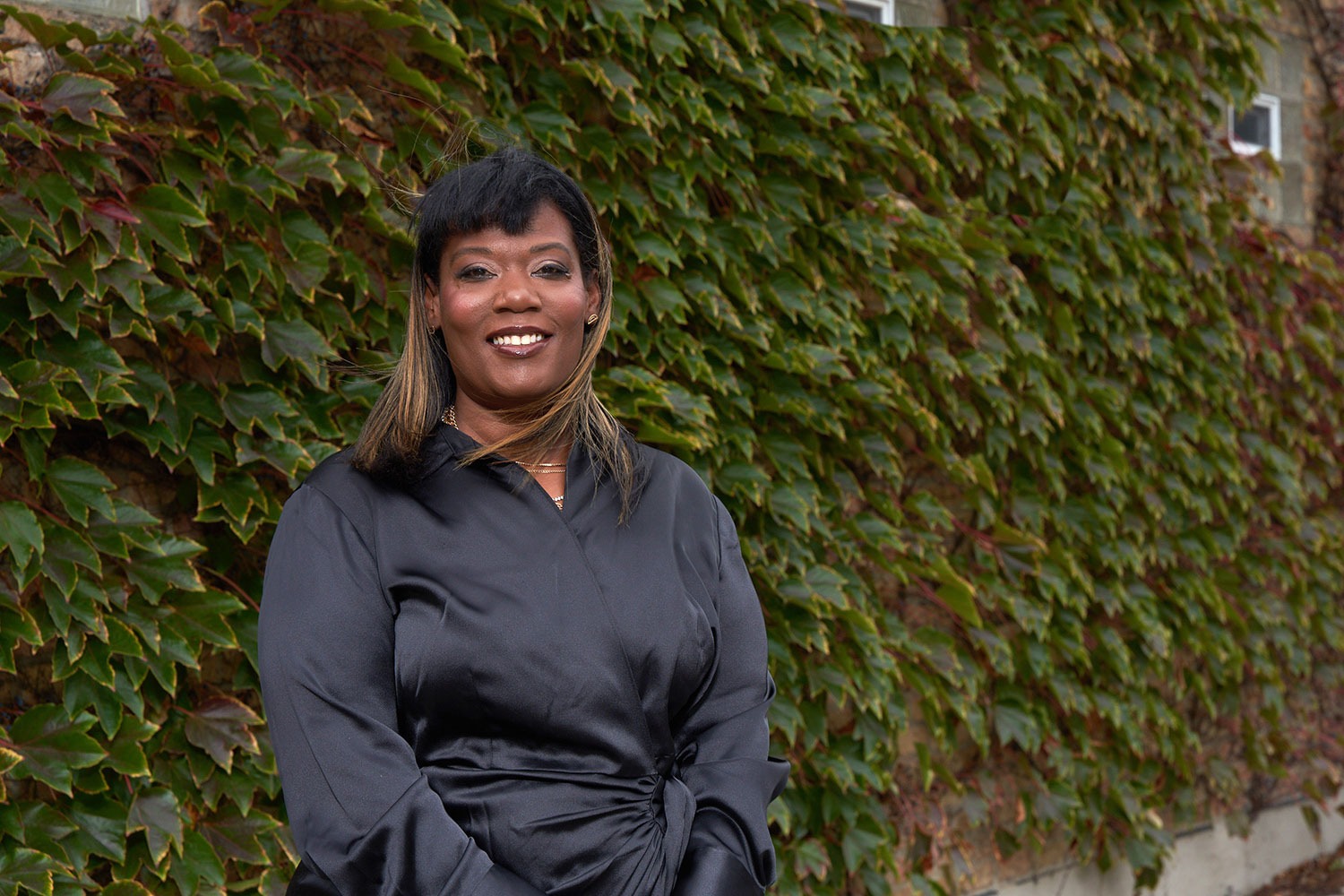It was late September, and Chicago was strutting. Clear blue sky. Not a whisper of humidity. You looked for a reason to be outside.
Chez Smith had her reason. She was on the corner of 79th and Cottage Grove, setting up a table filled with free diapers, soap, and feminine hygiene products. She had ordered chicken and coleslaw, enough for 50 people, to be delivered that afternoon. It was the fifth anniversary of the Gyrls in the HOOD Foundation, and Smith was out spreading the word. “We started in the streets, where the people are,” she says. “I don’t like to be in the office.”
Smith founded the organization (“HOOD” stands for “healthy, optimistic, outstanding, determined”) in 2017 to provide reproductive health education and supplies to teen girls in Chicago’s underserved neighborhoods. For the Englewood native, it was personal. Smith, now 44, was raised by her grandparents, and her grandmother died when Smith was in high school. “I was definitely not comfortable talking to my grandfather about periods,” she says.
It started with Degrees B4 Diapers, a 12-week program Smith offers at schools, churches, and community groups to teach girls about financial literacy, post–high school opportunities, and sexual health. But Smith has since expanded the organization’s scope. She began giving kits filled with tampons, pads, and other toiletries to program graduates. She quickly realized there were others who needed help, too. Girls were staying home from school during their periods because they didn’t have menstrual products. Or they were using wadded-up paper towels. So Smith started soliciting donations, hoping to help more people. She has distributed more than 1,200 kits, along with coats, food, and contraceptives.
Now Gyrls in the HOOD isn’t just seeking out girls in need — it’s taking them in. A year ago, it opened the HOOD House in Greater Grand Crossing for women 18 to 21 who need a stable place to live. “I’ll be telling a girl, ‘You need to go to the doctor and keep up with your appointments,’ and she’ll be like, ‘Lady, I slept in the park last night,’ ” Smith says. They can stay free for up to a year. So far the home has provided shelter for three young women and a baby.
At times it all takes a toll on Smith. “Some days I get home and I’m all beat up mentally because of the stories I’ve heard. But some days it’s like, ‘Chez! Guess what? I got a job!’ or ‘I’m going to school! Can you get me some stuff for my dorm?’ Those days outweigh the others.”



